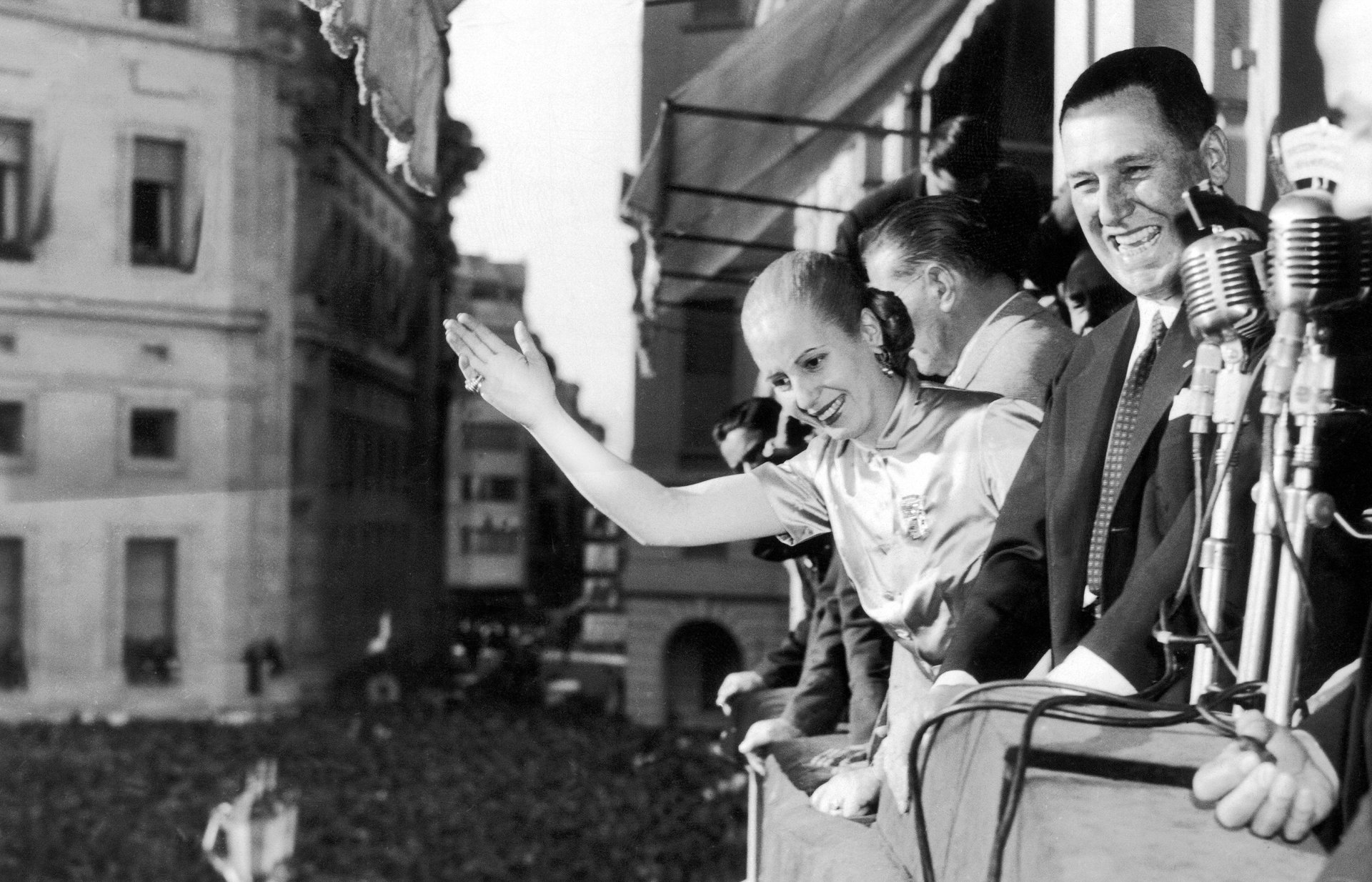The feud between Trump and Elon Musk is all about Argentina
The titanic clash between the president and the Tesla chief can be explained by contrasting views of Argentina's development

Alex Wroblewski and Allison Robbert / AFP via Getty Images
Last week’s billionaire breakup between Tesla CEO Elon Musk and President Donald Trump showed it takes two to tango for an explosive performance.
In Latin America, one country has served as a laboratory for the hard-right in recent years: Argentina. Both Musk and Trump bought into conflicting versions of Argentina that explain the origin of their epic clash, even as Musk shows early signs of regret
Musk is a close ideological companion of Javier Milei, Argentina’s libertarian president who won office in 2022. In a swipe at Trump’s megabill moving through Congress, the Tesla chief amplified a post on Saturday cheering Milei’s harsh austerity campaign to slash public spending as clever politics. Musk and Milei also appeared together at a conservative conference in February to package Trump’s MAGA movement as the latest American export in “Making Argentina Great Again.” Trump met with Milei at the time as well.
Musk yearned for Trump to govern like Milei, a chainsaw-wielding capitalist dismantling the state. Instead, he got an "Evita"-loving tariff enthusiast closer to the deficit-spending, strong-arm government policies of Argentine President Juan Perón in the 20th century. Call it American Perónism.
“Trump is making all the classic Argentine mistakes,” former Treasury Secretary Larry Summers said in April. “Our own Juan Perón.”
JPMorgan Chase singled out Perón as a cautionary tale. A May report from the bank warned that the U.S. risks repeating Perón's worst mistakes by imposing an armada of tariffs on foreign products, encroaching on the Federal Reserve’s independence to set interest rates, and pursuing other destabilizing economic moves. It did so without naming Trump.
Perón similarly galvanized a movement around a nationalist agenda, which bordered on left-wing fascism. He built a wall of trade barriers to shield the Argentine economy from foreign exports and supercharge domestic manufacturing. He also revved up the money printer to shower cash on the working poor and key constituencies with scarce regard for budget deficits.
Those policies contributed to a boom, bust, and bailout cycle still gripping Argentina decades later. “Trumpism would — like Perónism — make the United States become a less stable democracy with a lower quality government and a more politically-minded economic policy,” Maia Mindel, an Argentine economist and author of a popular economics newsletter on Substack, told Quartz, adding it would lead to higher inflation and lower growth over time.
No Starlink satellite was necessary to observe the early warning signs of Musk's eventual conflict with Trump. It began in plain sight with trade. Shortly after the November election, the SpaceX founder posted on X it was a “Good move” for Milei to slash import taxes on foreign purchases.
At the start of Trump’s second term, Musk offered mostly low-grade criticism in public while laboring privately to undo the tariffs. When the alliance combusted, scorched-earth replaced the soft touch.
“The Trump tariffs will cause a recession in the second half of this year,” Musk posted on X during his duel with Trump. He took that post down two days later.

Argentinian President Juan Perón and his wife Eva Perón hail the crowd from the presidential balcony in Buenos Aires, October 1950.
Keystone-France/Gamma-Keystone via Getty Images
Trumpism and Perónism sit on different branches of populism. Both carry a strain of authoritarianism, hostility towards the political elite, and working-class appeal.
“Trumpism and Perónism have been compared pretty extensively given the ‘cult of personality’ and authoritarian — bordering on autocratic — aspects of both, their embrace of conspiracy theories and conspiratorial, us-or-them thinking, and their dirigiste and nationalistic economic agenda,” Mindel said.
Trump switched political parties five times, so he hasn’t stuck to a single ideology. Perón’s wife and political ally, Eva, might be more lodged with Trump given his affinity for musicals. “My favorite Broadway show is 'Evita' by Andrew Lloyd Webber,” Trump said in a 2004 book he authored, adding he watched it six times. Some observers over the years pointed out a tendency of Trump to do photo-ops from balconies, Evita-style. He’s also called Democratic Rep. Alexandria Ocasio-Cortez of New York “Evita” on several occasions.
Still, any comparison between two movements in different countries risks glossing over what separates them, said Michael Paarlberg, a political science professor at Virginia Commonwealth University. Perónism is a broad political encampment focused on workers’ rights, enfranchisement, and social inclusion. Trumpism wraps around political and cultural grievances with other threads up for grabs.
“[Trump] is certainly an economic nationalist and in that sense there's some overlap with the Perónists. But he doesn't have a holistic vision for economic development,” Paarlberg told Quartz. “He’s not a theorist. He’s not an ideologue.”
Trump’s sweeping domestic policy bill includes a suite of tax cut provisions, including no tax on tips and overtime pay. But the bulk of the benefits are projected to flow to the top 5% while leaving the poorest families in worse financial shape, according to a nonpartisan budget scorer in Congress. Far from charting a new course for the GOP, the Trump-backed legislation falls neatly within standard Republican orthodoxy on concentrating tax cuts for businesses and the richest Americans to stimulate growth.

Tesla chief executive Elon Musk and Argentine President Javier Milei at the Conservative Political Action Conference in February.
SAUL LOEB/AFP via Getty Images
For over a year, Milei has employed shock therapy to stabilize Argentina’s ailing economy with the fervor of a guerrilla. He has purged Peronist symbols from government buildings, eliminated energy and transport subsidies, and knocked down regulations to attract foreign investors. The self-professed anarcho-capitalist has also flocked to the U.S. at least ten times since assuming office, and secured face time with Trump and Musk for nearly all of those visits, according to The New York Times.
Trump and Musk’s political breakup puts Milei in an awkward position. Despite Milei’s efforts to create a friendlier business environment, foreign capital isn’t flooding in. Investors are staying on the sidelines. Argentina drew in just under $1 billion last year, a trickle compared to before the pandemic, Bloomberg reports.
Milei pulled off other achievements: Inflation isn't soaring as it once did and his government has right-sized the budget.
But almost everything from groceries to public transport costs more, rendering Argentina the most expensive country in Latin America. During a visit to Buenos Aires early this year, I saw a customer approach a clerk at a small bookstore about the price of a new children's book. He asked if it was 1,200 Argentine pesos. It was the equivalent of a little over $1 — a bargain anywhere. Many new books cost at least $20 or more around the Argentine capital.
But the customer misread the sticker price. The clerk chuckled and responded with a little wry humor: “There’s nothing that’s 1,200 pesos in Argentina anymore, not even a mineral water.”
Protests and occasional strikes have sprung up against the degraded quality of living. “These days when you go to buy something, it’s like paying [without] euros,” said 52-year-old Cristian Laferrere, a disabled pensioner at a demonstration against Milei’s policies near the Argentine presidential palace. “We don’t live in Europe.”
Perónism was cast out in Argentina’s last election. But Perón-style economics is gaining a new foothold in the U.S., at least temporarily. Ross Levine, a senior fellow at the Hoover Institution, put it this way: “The US is taking steps in a direction many other countries have gone before and that has not led to very prosperous outcomes,” he told Quartz.